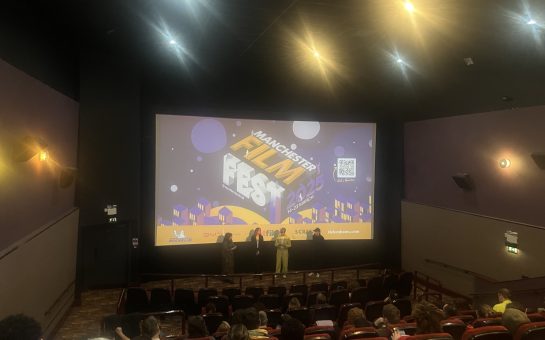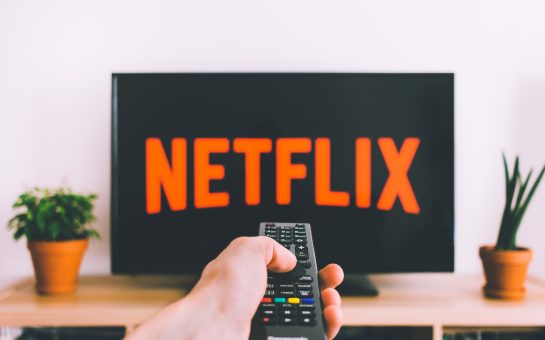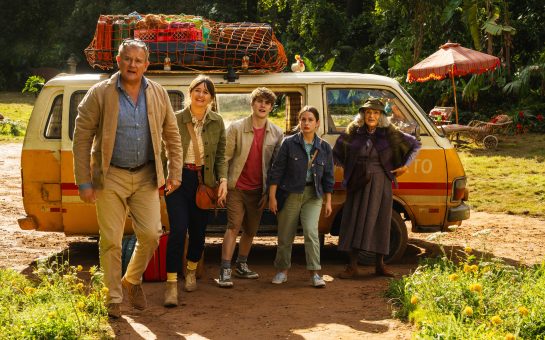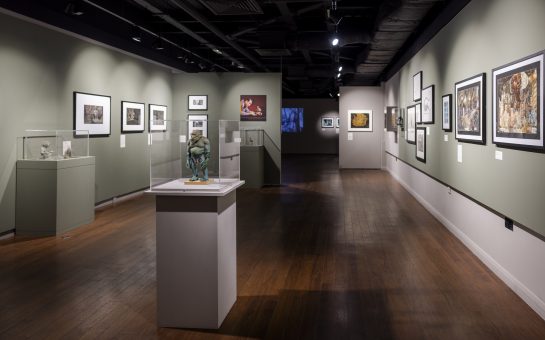Spike Lee’s BlacKkKlansman has come under fire after Sorry To Bother You director Boots Riley challenged the authenticity and central message of the film.
The Spike Lee picture begins with the message “Dis joint is based on some fo’ real, fo’ real shit.” We then follow the story of Ron Stallworth, a black undercover cop in 1979 who infiltrates the Klu Klux Klan.
However, Riley has claimed Lee fabricated story elements to glorify the protagonist and the intelligence unit behind the operation.
Writer/director Lee is a seasoned provocateur in his field, known for such films as She’s Gotta Have It (1986), Do the Right Thing (1989) and Malcolm X (1992) that have delved in to the racial divide and broadcast the struggles of African-Americans.
Lee’s films tend to study the extremes of racism, never shying away from the harsh realities that his own culture has had to face.
In the post-Trump world – who he refers to as “Agent Orange”, refusing to speak his name – he believes the racial brutalities in BlacKkKlansman are alive in America more than ever before, asserting to The Hollywood Reporter that the film is “not a relic of the past – this is happening today.”
In Boots Riley’s Sorry To Bother You the focus is on the institutionalised racism in the American work force.
The protagonist Cassius – portrayed by Lakeith Stanfield (Atlanta, Get Out) – struggles at his job as a telemarketer until he is given a tip by his black colleague that he should use his “white voice” over the phone.
Lo and behold, Cassius finds immediate success. Both films’ use of a black man using a “white voice” over the phone to get ahead is eerily similar.
The debut director first made his opinions on BlacKkKlansman when he tweeted:“After 40 years of cop shows and cop movies, did we really need one more movie where it’s supposed to be about racism but the cops are the actual heroes of the film and the most effective force against racism? Rhetorical question.”
Riley since removed the powerful tweet and uploaded a three-page essay on twitter, explaining his views in detail.
BlacKkKlansman sets up Stallworth as facing tensions from both sides of the moral divide, he has to deal with hostility from not only institutionalised racism and white supremacy but also from black radical organisations. This puts the character in a moral conundrum at times and makes Stallworth seem even more heroic when he overcomes these difficulties.
In the film, the character is portrayed as infiltrating the group for one night at speech delivered by civil rights protestor Kwame Ture.
Ture is portrayed as encouraging the young impressionable black student movements to arm themselves.
Ok. Here’s are some thoughts on #Blackkklansman.
Contains spoilers, so don’t read it if you haven’t seen it and you don’t wanna spoil it. pic.twitter.com/PKfnePrFGy
— Boots Riley (@BootsRiley) August 17, 2018
However Riley contends that the aim of Ture’s organisation The All-African People’s Revolutionary Party (AAPRP) was to create a Black intelligentsia through an “immensely long reading list and vigorous study groups”.
Riley points out that in real life, Stalworth’s infiltrated a Black radical organisation for three years. He claims that the FBI’s Counter Intelligence Unit intent was to sabotage these types of groups from the inside by “instigating infighting” to cause the group to make themselves look bad and set them up against the cops.
Conversely, Riley asserts that the intent of the undercover operation against the KKK was to direct them towards attacking radical organisations – “undercover cops who literally came up with plans and literally pulled the trigger on assassinations.” – referencing Gary Thomas Rowe, an undercover cop who infiltrated the KKK.
There was evidence that he murdered in the name of the clan and was the prime suspect in many bombings.
Riley also refers to Church bombings and specifically the Greensborough Massacre of The Communist Worker’s Party, an anti-KKK march, where evidence of police knowledge prior to the incident was uncovered.
Riley indicates that Stallworth would in fact be the villain of his story if the case files hadn’t been destroyed and our only knowledge of his case didn’t (conveniently) rely solely on his own memoir, the film’s source material.
The end of BlacKkKlansman features footage of the August 2017 Charlottesville rallies where neo-Nazis protested the removal of Confederate monuments.
A peaceful counter rally was staged by a variety of groups with different political views, including the movement Black Lives Matter and the Revolutionary Communist Party.
A participant of the counter rally Heather Heyer was murdered when a car ploughed in to the crowd. At a Live Satelite Q&A with the BFI, Lee described the violent acts as “homegrown, American apple pie acts of terrorism.”
Trump refused to condemn the white nationalist group Unite the Right, he told reporters that there was “blame on both sides” in what could be perceived as an attempt to cling on to the white supremacist vote.
The film draws direct comparisons between Trump and David Duke, the former Grand Wizard of the KKK.
Duke, portrayed by Topher Grace (That 70s Show, Spider Man 3) flippantly says the line “Let’s make America the greatest again”, whilst being hoodwinked by Stallworth over the phone.
Grace told The Daily Beast that Duke actually did use the terms ““America First” and “Make America Great Again” a lot” in television appearances.
It would appear that Lee hasn’t pulled his punches. However, he has set a narrative that the police come in and save the day, like shining white knights with the heroic black Ron Stallworth making it all come together.
Riley also references key plots from the film and characters that were completely fabricated to build on the film’s tension – like a Jewish cop and a climactic explosion.
In regards to the broad central message that the white supremacy is the enemy, Riley argues that the real problem lies within systematic inequality.
He writes that black people deal with it in “pay scale, housing, health care, and other material quality of life issues.” The racist doctrines serve as smoke and mirrors to distract from the fact that Black people deal with racism daily “And not just from White Cops. Black cops too.”
In Sorry To Bother You, Riley focuses on the daily inequality that the African-diaspora has caused. The struggle lies within the protagonist’s own moral inclination: he faces a dilemma of either selling out on his black identity to get ahead or being true to himself.
Speaking on the podcast ‘WTF with Marc Maron’, former rap artist Riley said that cop shows in mainstream media purport the message that “poverty is created by the bad choices of the impoverished” – that minorities unconsciously choose to commit crime, live in bad neighbourhoods, provide bad parenting and remain in poverty because people haven’t figured out the right path.
He elaborated that this prejudice ignores the fact that “we live in an economic system that necessitates poverty…capitalism must have a certain amount of unemployed people to survive. They need an army of unemployed people to threaten your job.”
Sorry To Bother You has been an indie-hit, grossing over $15 million in its first month – earning almost five times its meagre $3.2 million budget.
BlacKkKlansman opens in the UK on the 24th of August.



